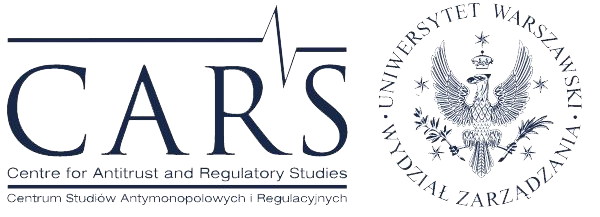For articles in law:
| Evaluation criteria | Score (0-10) |
| 1. Significance of Themes Is this a topic that needs addressing in Yearbook of Antitrust and Regulatory Studies? Is the area investigated by the article: timely? important? in need of addressing because it has been neglected so far? filling a gap in current knowledge? By addressing these themes, does this article make a useful contribution? Is it itself significant? |
|
| 2. Relevance of Themes Are these themes relevant to this publication? |
|
| 3. Clarity of Thematic Focus Are the articles objectives and themes clearly stated? Does the article address them consistently? Is the structure of the article clear, in particular is it divided into: definition of objectives, presentation of research methods, analysis and conclusions? |
|
| 4. Relationship to Literature Does the article demonstrate an adequate understanding of the current literature in the field? Does it refer to previous research studies, not only textbooks or practitioner literature? Does it connect with the literature in a way which might be useful to the development of our understanding in the area it addresses? |
|
| 5. Relationship to Jurisdiction Does the article refer to the most recent or older case law from courts ? Does it present an exhaustive (regarding its scope) combination of cases reflecting amendments and tendencies in case law? Is the opinion on the thesis presented in the jurisdiction expressed in the article? Is the article based, when needed, on decisions taken by administrative bodies? Does it connect with the jurisdiction in a way which might be useful to the development of our understanding in the area it addresses? |
|
| 6. Usefulness for Interpretation of Positive Laws Has the literature and jurisdiction been extensively analyzed? Have them been used effectively for interpretation and application of positive laws, for proposing new possibilities of interpreting legal norms, as well as for providing readers with arguments supporting interpretation settled so far in practice? May conclusions be useful for courts and public authorities applying law and for addressees of legal norms? |
|
| 7. Use and Development of Theories Does the article use theories in meaningful way? Does it develop or employ theoretical concepts in such a way as to make plausible generalisations? Does the article contribute to a development of theories in public economic law, specially legal theories of antitrust and sector-specific regulation? |
|
| 8. Critical Qualities Does the article’s content represent any standards of originality and intellectual independence of the author(s)? Does the article prove author’s trials of solving a particular theoretical or practical problem? Are conclusions de lege lata and recommendations de lege ferenda included in the article? Does the article demonstrate a critical self-awareness of the author’s own perspectives and limitations? Does it show awareness of the possibility of alternative or competing perspectives? Does it contain a section outlining practical implications of the article findings? |
|
| 9. Clarity of Conclusions Are the conclusions clearly stated? How do you rate the cohesiveness of the article: do the conclusions adequately tie together the other elements of the paper (such as literature, jurisdiction, and critical perspectives)? |
|
| 10. Quality of Communication Does the article clearly express its case, measured against the technical language of the field and the reading capacities of an academic, tertiary student and professional readership? What is the standard of the writing, including spelling and grammar (bear in mind that the article should have been composed in British English)? |
|
| Total score (0-100) |
RECOMMENDATION
On the basis of the above evaluation, my recommendation is as follows (mark with ‘X’):
[ ] ACCEPT
[ ] ACCEPT WITH MINOR REVISIONS
[ ] RESUBMIT WITH MAJOR REVISIONS
[ ] REJECT
As a guide, the following are indicative score ranges:
- Accept (without qualification): 75-100%
- Accept with minor revisions: 60-75%
- Resubmit after major revisions: 40-60%
- Reject: Below 40%
COMMENTS
If for any criterion, your score is lower than 8, please justify your evaluation below. Please list any detailed recommendations for modifications and improvements. Your ratings and comments will be shared with the article author.



